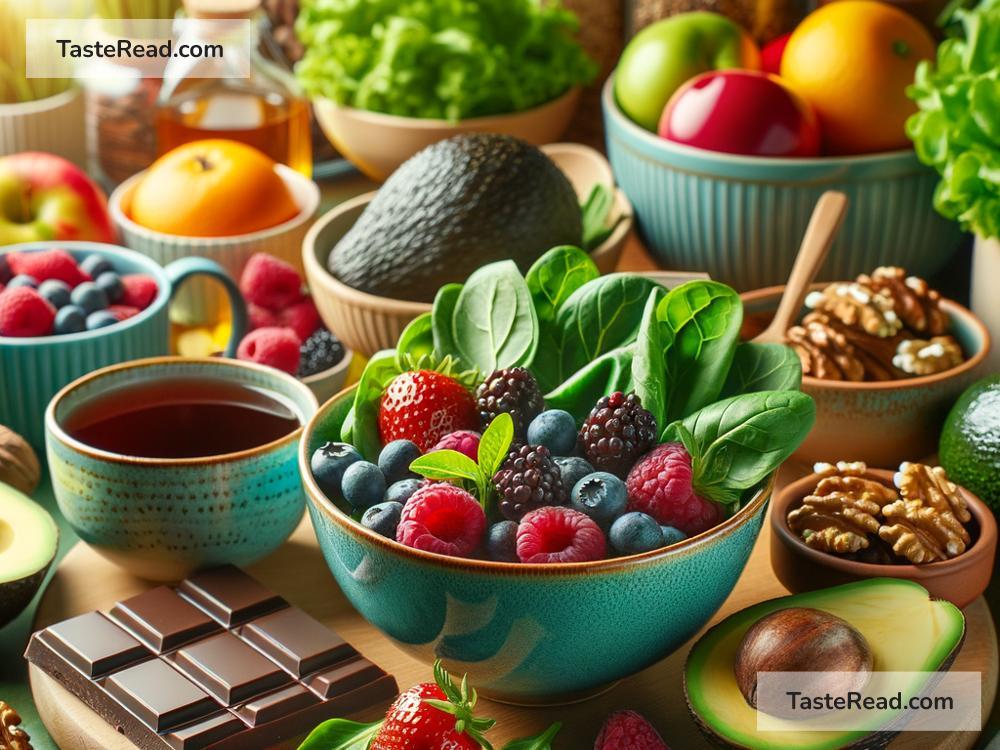Foods to Tame Emotional Volatility: Eat Your Way to Calm
Life can be a rollercoaster of emotions. Some days you feel like you’re soaring with joy, while other days can feel heavy and overwhelming. Emotional volatility—the tendency to swing between extreme highs and lows—can be taxing on your mental and physical health. While many factors play a role in how we feel, the foods we eat can help create emotional balance and calmness. In this blog, we’ll explore how certain foods can reduce emotional ups and downs and support a stable mood.
The Gut-Brain Connection: Why Food Matters
Before diving into specific foods, it’s important to understand the gut-brain connection. The gut is often called the “second brain” because it communicates directly with your mind through the gut-brain axis. In fact, about 90% of your body’s serotonin—a mood-regulating neurotransmitter—is produced in your gut. If your gut is unhappy, your mood may follow suit.
Eating nutrient-rich, gut-friendly foods can stabilize your emotions by promoting better digestion, regulating hormones, and keeping your brain chemistry balanced. The saying “you are what you eat” is truer than ever when it comes to emotional health.
Foods to Stabilize Your Emotions
Certain foods have the ability to improve brain health, regulate stress hormones, and provide the nutrients your body needs to stay calm and focused. Here are some top picks:
1. Oily Fish
Oily fish like salmon, mackerel, and tuna are packed with omega-3 fatty acids, which are essential for brain health. Omega-3s help regulate mood and reduce inflammation in the brain. Studies have even linked omega-3 fatty acids to lower rates of depression and anxiety.
If you’re not a fan of fish, you can still get omega-3s from options like flaxseeds, chia seeds, and walnuts. Consider adding these foods to your diet to keep emotional turbulence at bay.
2. Whole Grains
Whole grains like oats, quinoa, brown rice, and whole wheat bread release their energy slowly, which helps stabilize blood sugar levels. Balanced blood sugar is crucial for mood consistency. When blood sugar spikes and crashes, it can leave you feeling irritable, anxious, or fatigued.
Whole grains are also rich in B-vitamins, which play a key role in brain function and stress management. Swap refined carbs like white rice and sugary cereals for whole grains to build a calmer and more grounded emotional state.
3. Dark Chocolate
Here’s some good news: indulging in a square or two of dark chocolate can actually do wonders for your mood. Dark chocolate contains magnesium, which is known for its calming effect on the brain. It also boosts serotonin levels, providing a temporary mood lift.
For the healthiest option, choose dark chocolate with 70% or higher cocoa content and enjoy it in moderation. It’s a delicious and natural way to combat emotional swings.
4. Leafy Greens
Spinach, kale, and other leafy greens are rich in magnesium and folate—two nutrients that help relieve stress and lower anxiety. Folate, in particular, supports the production of dopamine, a feel-good chemical that promotes emotional stability.
Adding leafy greens to salads, smoothies, or stir-fries is a simple way to ensure your body gets what it needs to stay emotionally balanced.
5. Bananas
Bananas are a fantastic snack for taming emotional volatility. They’re loaded with vitamin B6, which helps your body produce serotonin. They’re also a great source of natural carbohydrates, which can give you sustained energy and keep mood swings at bay.
When your emotions feel out of control, grab a banana for a quick boost of calm and focus.
6. Fermented Foods
Fermented foods like yogurt, kimchi, sauerkraut, and kefir are rich in probiotics—good bacteria that support gut health. Since your gut and brain are so closely connected, a healthy gut can improve mood stability and reduce stress.
If you don’t already include fermented foods in your diet, try adding them gradually. Your gut and your emotions will thank you.
7. Nuts and Seeds
Nuts and seeds, such as almonds, walnuts, sunflower seeds, and pumpkin seeds, are nutritional powerhouses. They’re high in magnesium, omega-3s, and tryptophan, an amino acid that helps produce serotonin.
These nutrient-packed snacks can help you feel calmer and more centered. Pair them with dark chocolate for a nourishing treat!
8. Berries
Berries like blueberries, strawberries, and raspberries are full of antioxidants that protect the brain from stress and reduce inflammation. They also contain natural sugars that provide a gentle energy boost without causing blood sugar spikes.
Incorporate fresh or frozen berries into smoothies, oatmeal, or yogurt for a sweet and emotional balance.
Foods to Avoid
Just as some foods help calm your emotions, others can trigger volatility. Try to limit:
- Sugary snacks and drinks: They cause blood sugar crashes that make you irritable.
- Highly processed foods: They often lack nutrients and disrupt your gut health.
- Excess caffeine: Too much caffeine can increase anxiety and restlessness.
Small Steps for Big Change
Improving emotional stability isn’t about strict diets or sudden changes. Start small. Add one or two of these calming foods to your daily meals and notice how your mood improves over time. Focus on eating whole, nourishing foods and staying hydrated.
A balanced diet can go a long way toward reducing emotional volatility. Pair these foods with self-care practices like regular exercise, mindfulness, and adequate sleep to create a holistic approach to emotional well-being. When you nourish your body, you also give your mind the tools it needs to weather life’s ups and downs with resilience and calm.
So, next time you’re feeling emotionally overwhelmed, take a deep breath and head to the kitchen. Your plate might just hold the key to your peace of mind.


